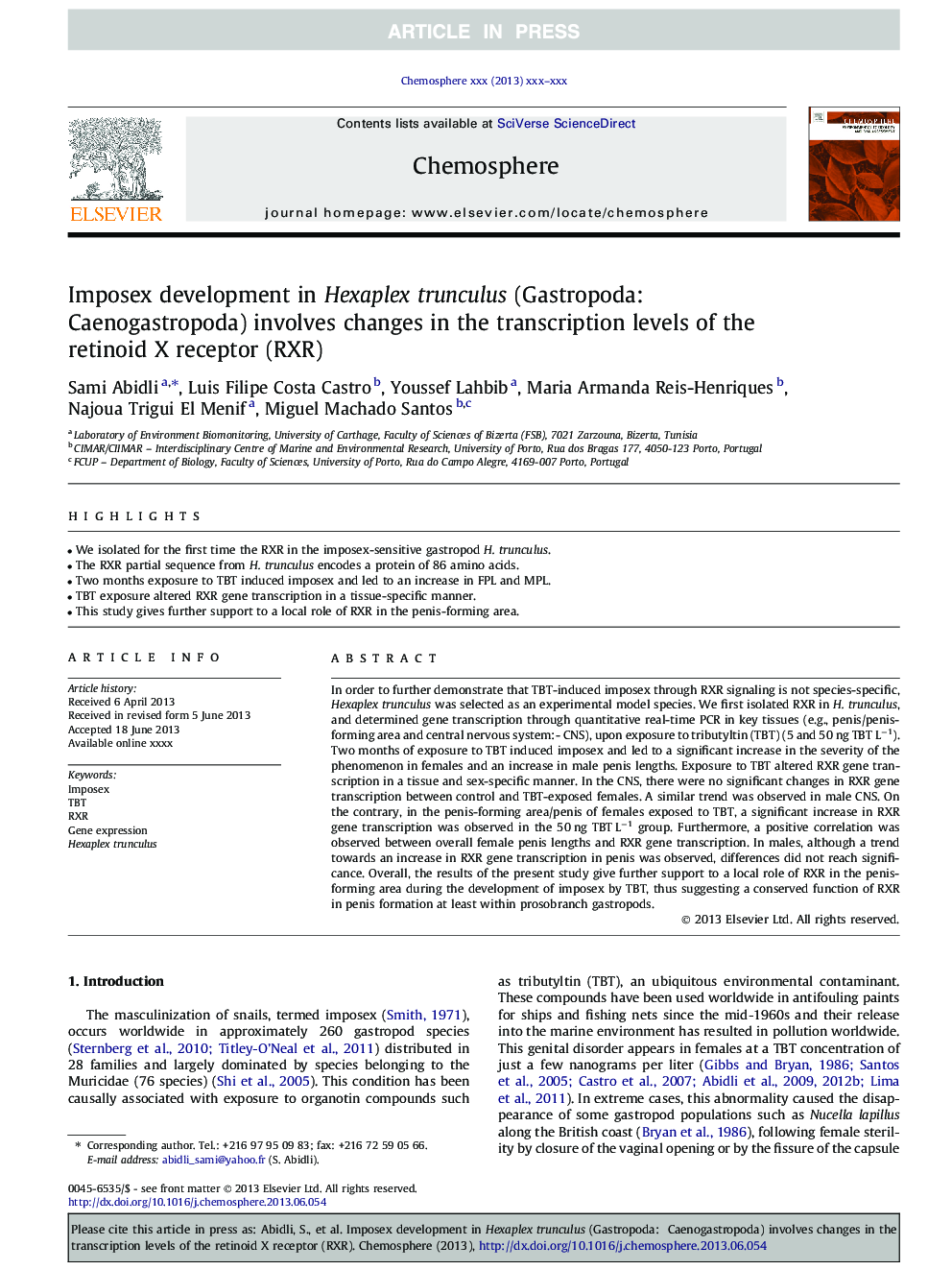| Article ID | Journal | Published Year | Pages | File Type |
|---|---|---|---|---|
| 6310356 | Chemosphere | 2013 | 7 Pages |
Abstract
In order to further demonstrate that TBT-induced imposex through RXR signaling is not species-specific, Hexaplex trunculus was selected as an experimental model species. We first isolated RXR in H. trunculus, and determined gene transcription through quantitative real-time PCR in key tissues (e.g., penis/penis-forming area and central nervous system:- CNS), upon exposure to tributyltin (TBT) (5 and 50Â ng TBTÂ Lâ1). Two months of exposure to TBT induced imposex and led to a significant increase in the severity of the phenomenon in females and an increase in male penis lengths. Exposure to TBT altered RXR gene transcription in a tissue and sex-specific manner. In the CNS, there were no significant changes in RXR gene transcription between control and TBT-exposed females. A similar trend was observed in male CNS. On the contrary, in the penis-forming area/penis of females exposed to TBT, a significant increase in RXR gene transcription was observed in the 50Â ng TBTÂ Lâ1 group. Furthermore, a positive correlation was observed between overall female penis lengths and RXR gene transcription. In males, although a trend towards an increase in RXR gene transcription in penis was observed, differences did not reach significance. Overall, the results of the present study give further support to a local role of RXR in the penis-forming area during the development of imposex by TBT, thus suggesting a conserved function of RXR in penis formation at least within prosobranch gastropods.
Related Topics
Life Sciences
Environmental Science
Environmental Chemistry
Authors
Sami Abidli, Luis Filipe Costa Castro, Youssef Lahbib, Maria Armanda Reis-Henriques, Najoua Trigui El Menif, Miguel Machado Santos,
